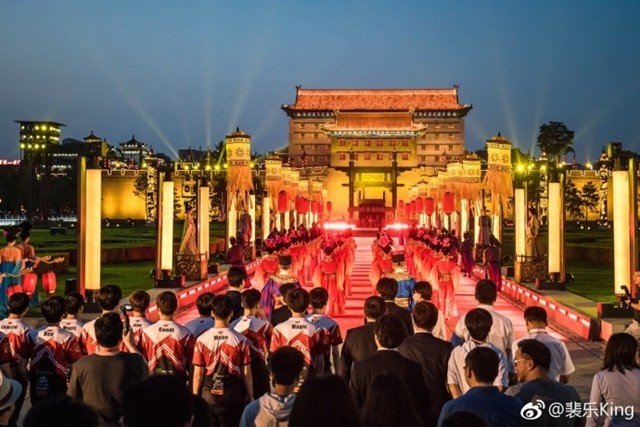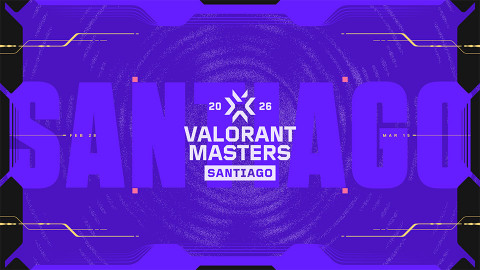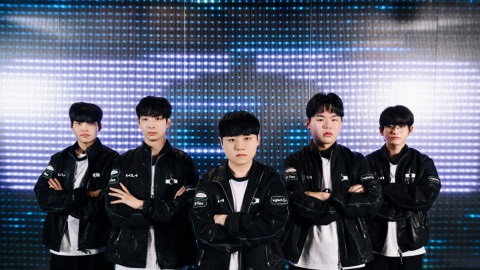Just a year ago, no one would've imagined the LCK to fall in an international tournament. Korea was like Marvel's Thanos, they were simply too strong. From 2013 to 2017, Korea consistently won the World Championships; furthermore, from 2015 and onward, the Worlds Finals always featured two Korean teams. Surpassing the LCK seemed impossible.
During last year's Rift Rivals, however, things started looking differently. The region that dominated all the others fell on its knees to the LPL. From then on, LPL saw rapid growth. In 2017, they sent two teams to the Worlds semifinals -- same as Korea. And starting from the ALL-Star tournament of last year, China has won every international tournament.
Korea was able to come up with excuses for their loss in the 2017 ALL-Star and Rift Rivals; that China was desperate for an international win and that in the end, Korea still won the World Championship that year.
However, there were no available excuses for them this year. Firstly, RNG won a major international tournament, the 2018 MSI. In addition, the LCK teams practiced day and night for the 2018 Rift Rivals, but once again failed to conquer the Chinese teams. If China wins the 2018 World Championship, they will surely look invincible.
For a time, the LPL teams were no match for the LCK teams... how did they become so strong?

The LPL Coaches' Analysis
To begin, there is an interesting story behind the Rift Rivals: China completely saw through Korea. Mentioned by Kezman in an interview, after the 1st match (of the Finals), China correctly predicted LCK's 2nd, 3rd, and 4th competing team. Furthermore, according to an LPL personnel, China was fully aware that Kingzone was going to choose and play in the redside for the 4th match, and they prepared for the match accordingly.
LCK team had the choice of choosing a side for the 2nd and 4th match. Therefore, the LPL predicted that Kingzone will take the redside to give Khan, "Kingzone's strongest weapon," an advantageous lane. In addition, LPL was certain that Kingzone will play in the 4th match because, during the semifinals, LCK sent out Kingzone first. They made the prediction that Kingzone will play during the latter half of the Finals.
Despite knowing the fact that Kingzone will play in the 4th match, why did the LPL send out Rogue Warriors against them, a team rated to be considerably weaker than the other LPL teams? Their decision was based on their confidence. According to an LPL personnel, China actually saw Kingzone as an easy opponent. On the other hand, they regarded very highly of SKT, the team that was considered LCK's weakest link this tournament.
In the end, LPL sent out their weakest to play against the weakest and sent their strongest to play against the strongest. Although it was a standard tactic, it was only possible due to the confidence that the LPL had.

Of course, in the beginning, China's tactic seemed shaky. In game 1, KT's picks and bans completely threw off the LPL coaches. In addition, despite having correctly predicted the 3rd set, Afreeca Freecs were proven too strong. The LPL personnel complimented the Afreeca Freecs lineup, "We had predicted that AFs was going to play the Xayah gold-funneling composition. However, the AFs players played in a very smart manner."
But in game 2, RNG who had correctly predicted that they'll play against SKT was able to secure their victory; and Kingzone who was completely seen through was defeated by Rogue Warriors. The Finals went according to what China had planned. The story regarding the 5th and final match is also quite interesting. After unexpectedly seeing Kingzone defeated, the LCK hastily sent out AFs. As for the LPL, they had everything already completely planned out. After the 2nd match of the Finals, IG and RNG scrimmed -- this was in preparation for the 5th set.
Korea was playing in the hands of China. With their thorough analysis and preparation, the only thing China had mispredicted was KT. When put in this context, the LCK had actually done a great job of at least having taken two games off of the LPL.

In fact, the whole LPL scene saw a lot of changes. Not only did the LPL exceed Korea in terms of analysis, but China had built a solid foundation within their team culture that matched the likes of Korea. A couple of reasons follow the idea.
The Chinese Organizations Changed Their Way of Thinking
In China, the influence a coach or a head coach had over a team was minuscule. Last year, an LPL coach mentioned in an interview that "giving harsh feedback to a player immediately alerted the team owners. Therefore, the LPL coaches have little to no authority. The coaches are busy watching the faces of the people around them so that they can feed themselves." This was a part of LPL's bad team culture at the time.
However, recently, the culture of the LPL clubs saw a lot of change. They started laying out the correct foundations for building a strong team. The coach that has been a part of the LPL since 2015, RNG's coach, Heart, stated that "now, the clubs are giving the coaches a lot more power. Our team has been like that for a while now, and the other LPL teams are now starting to lean towards operating like us as well. With the changes, the coaches can now get the players to practice with ease."
JD Gaming's coach, Homme, also stated that "although still far in comparison to Korea, the LPL organizations are giving the coaches a lot more trust." He, however, added that the organizations still do put their distance on coaches who lack experience. Homme emphasized that the system still needs further improvements.
IG's coach, Jeong-Soo Kim shared a similar story. "Our team's manager trusts the team's coaching staff. However, there are still some things that the players have more influence on. This is especially the case if the coach isn't well-experienced. They don't show as much respect when that's the case."
Coach Kim also stated that he has made a rather strict rule within the team, banning cell phone games and limiting the players from leaving the house on weekdays. He added that the organization didn't stop him. As a result, Kim was able to push the team strongly, even when the players complained.
Increase in Practice
Since way back, LCK was always known for its extreme amount of practice. That remains unchanged even today. Korean teams still give out limited vacations and recently, they started forming 10-man rosters to establish late-night internal scrim sessions.
The top teams of China, however, practice nearly, or just as much. IG's coach, Kim, mentioned that "on an ordinary day, our team scrims throughout the night. Unless it's a tournament day or a holiday, we practice until midnight." He added that he remains firm with his orders/decisions even if the players complain or show temper. Kim also revealed that his team woke up every day at noon and practiced until 2 AM in preparation for the Rift Rivals. The only breaks the players were given was when it was time to eat. This wasn't exclusive to IG, almost all of the top LPL teams ran a similar schedule.
RNG's coach, Heart, stated that the "the LPL players don't practice more than the Koreans, but they definitely started practicing a lot more." He added that the increased amount of practice is currently "trending throughout all teams in China." Also, he mentioned that some players started increasing the amount of practice on their own. "Many strong LPL teams have Korean coaches. Since they're all from Korea, they often talk about how devoted the Korean players are. This inspired a lot of Chinese players to practice a lot on their own," he said.
JD Gaming's head coach, Homme, stated something similar. "In terms of all the teams that I have been with until now, the amount of practice definitely saw a lot of increase. But of course, I still don't think there is a country that's more hardworking than Korea. (Laughs) But since a lot of those coaches with the hard work ethics came to China, the LPL naturally started practicing more." JD Gaming that had employed coach Homme this year is currently tied for 1st place with RNG and IG in the LPL. JD Gaming was a 4th placed team of the B Group in the previous LPL Split.

The Change in Player Mentality
Chinese players were known for their immature approach to their career, 'professional gamer'. Some of the most famous related incidents include players often quitting practice whilst in the middle of it because they were "upset." In addition, some players completely ignored their coaches, often leading to scenarios in which the coaches would lose to the players in an argument.
Coach Heart voiced his opinion that "Chinese players always had great individual mechanics and potential. However, they often had issues when trying to blend in with a team. There are a few players that have never gone to school before. They joined the clubs simply because they played the game well. Therefore, they had difficulties when trying to adapt to the team culture."
But it's different now. The Chinese players have gotten used to the life of living in a teamhouse, and along with that, they began taking more responsibility. They are much more professional now. Coach Heart added to his previous statement that "the players now know that personal sacrifices need to be made for the better of the team."
The continued failure also acted as a tool that tempered the LPL players. Uzi and Mlxg have been playing in the LPL for a long time and respectably, were rated as some of China's best players. However, they always failed to win an international title every year. Through their constant failure, the players matured as both a player and man. As coach Heart himself simply put it, they became far more professional.
Coach Homme also added that "the LPL players' mindsets have become a lot more professional now. Of course, there are still some players that cause trouble, but there isn't a player like that on my team. The ability to maintain and fix player issues is actually a valuable asset that a coach can have."

Another big change over in the LPL is how the players started changing the way they view their coach. "Back then, the Chinese players didn't feel the importance of having a coach. Therefore, the trust between the players and coaches was thin. It was difficult coaching the players in that kind of environment. However, they view us differently now," Heart said. He explained that the LPL is currently establishing a culture where the clubs began putting more of their trust in the coaches.
The LPL Surpassing the LCK Wasn't Based on Luck
The LPL players were always regarded very highly for their mechanical prowess. Looking at the KR solo queue ladder alone can tell you that; many Chinese players' names decorate the top. China already had all the resources available, they just needed to refine them.
With the addition of the Korean coaches, they successfully changed the culture of the LPL teams. The many clubs' approach to coaches, the amount of practice, and the professional mindset of the players have all seen minor to major changes. In the end, LPL's raw minerals were all refined into gems. In the past, many LPL players had an amateur-mindset despite playing in the official pro league. But that can no longer be said.



There are other minor factors that might've contributed to China's sudden boom in performance. One, the LPL is currently in the works of being regionally franchised. China will be the first region to establish a 'home-away' system. Most of the LPL clubs have already built and are using their own stadium.
Adding in the Korean coaches' analysis, there are no longer any factors that put LCK above LPL. This, however, doesn't mean that the gap between the two regions is at large. IG's coach, Kim, mentioned that his team is still weaker than the LCK teams.
LCK and LPL are still at tug of war, and the LPL is just a single step ahead of the LCK. But in sports, a single step is all it takes.
Sort by:
Comments :0







